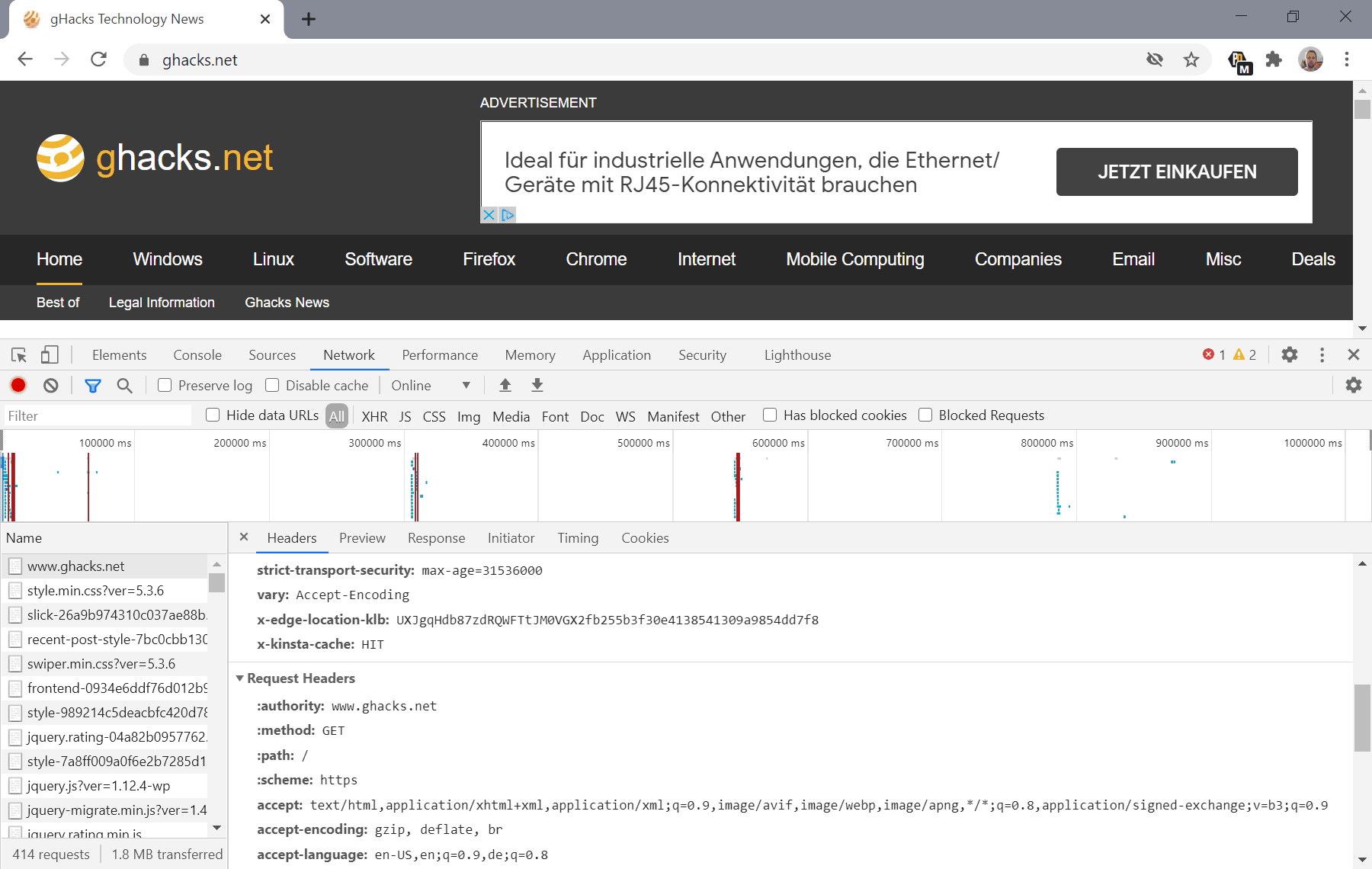Google Chrome users have several options when it comes to loading sites and web applications in the browser. They may click on links, use bookmarks, or type in the address bar to open sites directly.
If a user types a full domain name with protocol, it is opened as it is, but what happens when the user does not specify the protocol? When you type ghacks.net and hit the Enter-key, is Chrome loading the HTTPS site directly or trying HTTP first?
It turns out that Chrome is trying the HTTP version by default; this made sense for a very long time as most sites did not use HTTPS. Now, with the ever increasing percentage of HTTPS sites, it is the share of sites using the HTTP protocol that is getting smaller and smaller.
Google plans to introduce functionality in the company's Chrome web browser to make HTTPS the default.
A recent Chromium commit, spotted by Windows Latest, confirms the plan.
Default typed omnibox navigations to HTTPS: Initial implementation
Presently, when a user types a domain name in the omnibox such as "example.com", Chrome navigations to the HTTP version of the site (http://example.com). However, the web is increasingly moving towards HTTPS, and we now want to optimize omnibox navigations and first-load performance for HTTPS, rather than HTTP.
The initial version of the implementation is just a first step according to Google. It will modify code so that omnibox and auto-complete codes use HTTPS as the default. Google calls this "upgraded HTTPS navigations".

Chrome will fall back to HTTP if HTTPS is not supported by the site in question. SSL errors are ignored by Chrome if the HTTPS connection fails provided that it was part of an HTTPS upgrade.
The current implementation is not ready for general use according to Google. One shortcoming is that it waits for the HTTPS connection to load or to fail before trying HTTP. Future versions will cancel the load automatically to try HTTP connections.
The feature will be implemented in Chromium and it will, as such, become part of other Chromium-based web browsers such as Vivaldi, Microsoft Edge, Opera or Brave as well.
Google did not reveal performance information; it seems unlikely that users will notice a positive effect but it is quite possible that HTTP sites may load slower, at least initially because of the change.
Mozilla introduced an optional HTTPS-only mode in Firefox recently in Firefox 80.
Thank you for being a Ghacks reader. The post Chrome will soon try HTTPS first when a user types an address in the browser appeared first on gHacks Technology News.
https://ift.tt/2KXCcym
from gHacks Technology News https://ift.tt/3nfLO4p


No comments:
Post a Comment